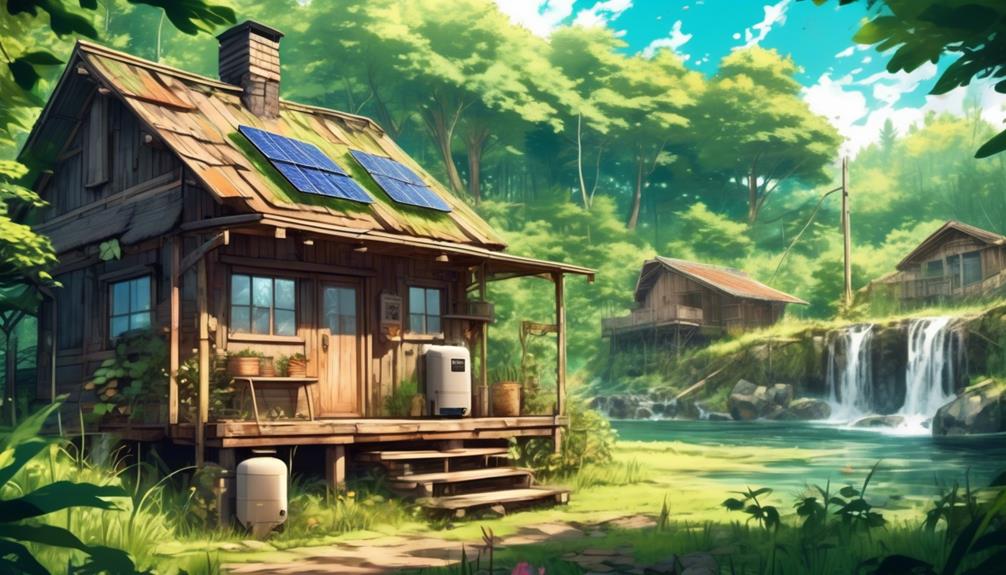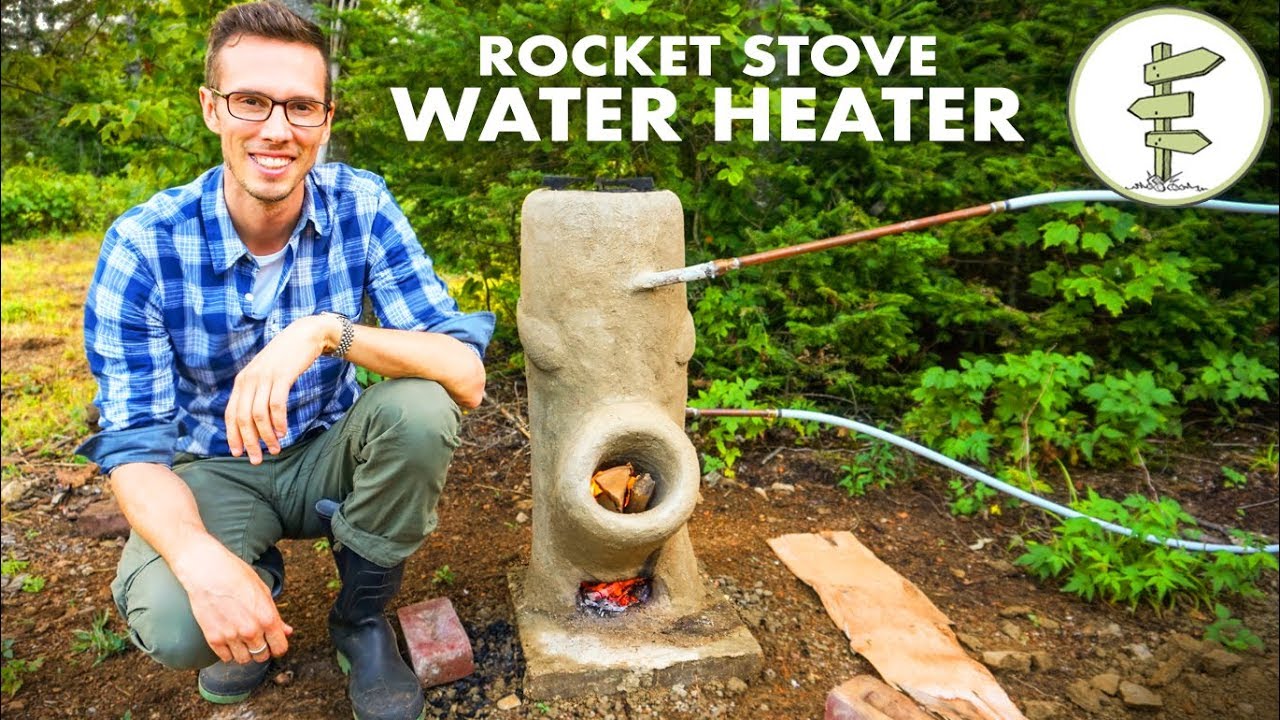In today’s world, where sustainability is at the forefront of our concerns, individuals and communities are continually seeking innovative ways to reduce their environmental impact.
The introduction of an DIY off-grid water heater has sparked a revolution in sustainable living, challenging traditional heating methods.
Developed by Sebastien and Isabelle, who possess a genuine passion for sustainable living, this water heater offers a reliable source of hot water without the need for electricity or propane.
By harnessing the principles of thermosiphon and passive heat exchange, this system provides a cost-effective and environmentally-friendly solution.
Excitingly, this article will delve into the details of this groundbreaking invention, exploring its prototype and future plans for refinement. Read on to discover how this DIY off-grid water heater is revolutionizing sustainability and shaping the future of off-grid living.
Off-Grid Rocket Stove Water Heater
- This DIY Off-Grid Water Heater is a sustainable and innovative solution for heating water without electricity or propane.
- It utilizes a handmade rocket stove, water barrel, and copper pipes to operate without electricity or propane, making it cost-effective and environmentally friendly.
- The thermosiphon method ensures continuous circulation of water without a mechanical pump, resulting in energy efficiency and cost savings.
- The creators plan to refine the system for future use, focusing on improving its efficiency and effectiveness, including the use of insulated hot water tanks and avoiding plastic barrels.
DIY Off-Grid Water Heater Basics

The DIY Off-Grid Water Heater is a sustainable and innovative solution that allows individuals to create a homemade system for heating water without the need for electricity or propane.
This system utilizes a homemade rocket stove, a water barrel, and copper pipes to heat the water through thermosiphon and passive heat exchange.
One of the advantages of this DIY water heater is that it operates without the use of electricity or propane, making it a cost-effective and environmentally friendly option. Additionally, the thermosiphon method ensures a continuous circulation of water without the need for a mechanical pump.
However, one disadvantage is that the system may not heat water as quickly as conventional heaters. Despite this, the DIY Off-Grid Water Heater offers an accessible and sustainable solution for individuals seeking to reduce their reliance on traditional heating methods.
Thermosiphon and Passive Heat Exchange
To understand the functioning of the DIY Off-Grid Water Heater, it is essential to explore the concept of thermosiphon and passive heat exchange.
Thermosiphon is a method of passive heat exchange that relies on natural convection to circulate fluid without the need for a mechanical pump. In the case of the DIY water heater, copper pipes inside the chimney heat up the water, which then circulates from the barrel to the stove and back.
This system offers several benefits, including:
- Energy efficiency: Thermosiphon water heaters require no electricity or propane, making them highly energy-efficient compared to traditional water heaters.
- Cost savings: The absence of pumps and fuel sources results in significant cost savings over time.
- Environmentally friendly: By using natural convection, thermosiphon water heaters reduce reliance on fossil fuels and minimize carbon emissions.
When compared to traditional water heaters, thermosiphon systems offer a more sustainable and cost-effective solution for off-grid living.
Prototype and Future Plans
Sebastien and Isabelle, the creators of the DIY Off-Grid Water Heater, have successfully built the first prototype and are now planning to refine the system for future use. Their main goal is to improve the efficiency and effectiveness of the water heater.
One of the key areas they plan to focus on is the insulated hot water tank. They believe that using an insulated tank will help retain the warmth of the water for a longer period of time, even in colder weather conditions.
Additionally, they aim to avoid using a plastic barrel for heating the water, as this can release harmful chemicals. Ultimately, Sebastien and Isabelle envision their DIY Off-Grid Water Heater being used as an outdoor shower, providing sustainable and eco-friendly hot water.
Water Heater Rocket Stove In Action…
Check out the water heater rocket stove in action below…

